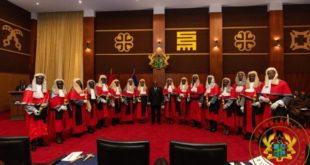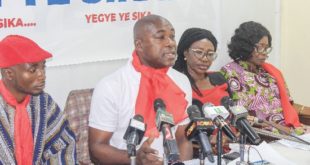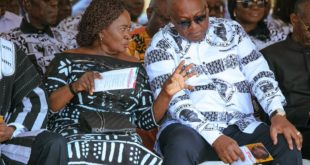Dr. Mahamudu Bawumia, the vice president, has hinted that the government plans to make “bold, difficult but firm decisions” in the coming days to ensure debt sustainability and budgetary restraint.
On Wednesday, October 26, 2022, Dr. Bawumia said in Accra that countries like Ghana could no longer operate in a business-as-usual mode but instead had to quickly pivot and become self-sufficient due to the ongoing change in the global economic order, rising inflation, and disruptions in global supply chains.
While President Akufo-Addo would provide more detail on the specific measures to be implemented during his upcoming address to the nation, the Vice President said they would be anchored on a number of pillars designed to tackle the current challenges. The Vice President was speaking to attendees at the 2nd Standard Chartered Bank Digital Banking, Innovation and Fintech Festival.
“What we are seeing globally, of course, with the disruption of global supply chains, post COVID, is a major change in what was the status quo before COVID. The global economy as we know it, as it existed, pre-COVID today does not really exist anymore. Emerging market access to the capital markets has been very restricted and may continue to be restricted for the foreseeable future. And more and more we are seeing economies rethinking economic strategies. But there is a clear move towards more self-reliance in economic policy.
“In Ghana specifically, we are dealing with an economic crisis that we have to address in different dimensions. The first and most important, which affects the confidence that we have in the economic system, is to make sure that we have fiscal and debt sustainability. This has been one of the areas where we are having discussions and negotiations with the International Monetary Fund about restoring fiscal and debt sustainability.
“No doubt it is not going to be easy. It will require very bold, difficult, but firm decisions. And I think these are part of the discussions that we’re having with the IMF. I’m sure once those are concluded, it will be clear that it will not be and it should not be business-as-usual because we have to adjust to the new global and domestic realities.
“What we are also seeing is that the nature of production needs to change. Why do I say that? You are seeing Ghana consistently over the last five years, having more and more trade surpluses. This is the first time in about 20 years that we’ve had consistently, about five years, of trade surpluses on our balance of payments. At the same time we are having a lot of current account deficits, which means that a lot of the foreign exchange that we are earning from our trade doesn’t stay in Ghana. And one of the areas where we have to address this is to reduce the import dependency that we have as a country.
“There is so much when you look at the broad spectrum, from toothpicks to tomatoes to rice, maize and so on, there is a very high level of dependence. But as the global economy is going to re-align to the new reality with more self-reliance, Ghana cannot be left behind. We also have to look very, very closely at how we enhance domestic production and reduce dependence on imports for commodities that we can very easily produce here in Ghana.”
Another area requiring urgent attention is the foreign exchange regime, which has experienced wild fluctuations in recent weeks, Dr Bawumia emphasized.
“We also have to look very clearly at our foreign exchange regime. It’s very clear that it is quite loose and this is why we are going to be working to see how we can tighten the foreign exchange regime.”
The President, Dr Bawumia indicated, would provide more details on the way forward soon.
“When the President addresses the nation, hopefully by the end of the week, some of these details will be fleshed out in more specifics. But in broad terms, I think you cannot address the current economic crisis without addressing the fiscal and debt sustainability, without addressing the production side, without addressing the foreign exchange regime and what allows us to lose a lot of foreign exchange.
“But more importantly, if we are going to address this, this economy must be digitalized. And that is something we started since 2017 in earnest because no economy can really participate in the Fourth Industrial Revolution without the digitalization of the economy.”
Source: Ghanatodayonline.com
 Ghanatodayonline.com News, Politics, Health, Education & More
Ghanatodayonline.com News, Politics, Health, Education & More



